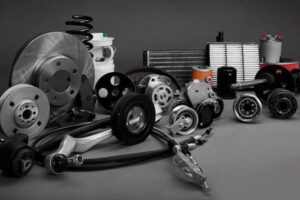Factors to Consider When Assessing the Quality of Used Car Parts

When it comes to purchasing used car parts, ensuring their quality is of utmost importance. The quality of the parts directly affects the performance, reliability, and longevity of your vehicle. As an expert in the automotive industry, I understand the significance of assessing the quality of used car parts before making a purchase. In this article, I will highlight the key factors you should consider when evaluating the quality of used car parts.
Source and Reputation:
The source of the used car parts plays a crucial role in determining their quality. It is essential to purchase parts from reputable dealers, salvage yards, or online marketplaces that have a positive reputation for providing reliable and well-maintained parts. Look for sellers with a long-standing presence in the industry and positive customer feedback. A trusted source increases the likelihood of acquiring high-quality used parts for your vehicle.
Physical Condition:
Carefully examining the physical condition of the used car parts is essential to assess their quality. Look for signs of wear, damage, or corrosion. Check for any dents, cracks, or bends in metal parts. For electrical components, inspect the connectors and wiring for any fraying or exposed wires. A high-quality used part should be in good condition, free from significant defects or damage that could impact its functionality or lifespan.
Compatibility and Fitment:
Another important factor to consider is the compatibility and fitment of the used car part with your vehicle. Ensure that the part is specifically designed to fit your vehicle’s make, model, and year. Check the part number and compare it with the original part to verify compatibility. Investing in a used part that fits correctly ensures proper functionality and avoids potential issues down the road.
Service History and Mileage:
Gaining insight into the service history and mileage of a used car part can provide valuable information about its quality. Ask the seller for details regarding the part’s usage, such as the mileage on the vehicle from which it was removed and any maintenance or repairs performed. A part with low mileage or light usage is generally considered to be in better condition and may have a longer lifespan.
Warranty or Guarantee:
A warranty or guarantee offered by the seller is an indication of their confidence in the quality of the used car part. While not all sellers provide warranties, it’s worth considering those who do. A warranty offers you protection and recourse in case the part does not meet your expectations or fails prematurely. It demonstrates the seller’s commitment to customer satisfaction and the quality of their parts.
Inspection and Testing:
Reputable sellers of used car parts often conduct thorough inspections and testing to ensure the quality and functionality of their products. Inquire about the seller’s inspection process and whether they perform any tests on the parts they sell. This can include visual inspections, functional tests, or even refurbishment or reconditioning processes. Knowing that a part has undergone a rigorous inspection and testing procedure adds confidence in its quality.
Customer Feedback and Reviews:
Customer feedback and reviews can provide valuable insights into the quality of the used car parts and the reliability of the seller. Take the time to read customer reviews and testimonials about the seller’s products and services. Positive reviews from satisfied customers indicate a high level of quality and customer satisfaction. Conversely, multiple negative reviews or complaints should raise concerns and prompt you to explore other options.
In conclusion, assessing the quality of used car parts is crucial to ensure the optimal performance and longevity of your vehicle. Consider the reputation of the seller, carefully inspect the physical condition, verify compatibility and fitment, gather information about the service history and mileage, inquire about warranties or guarantees, inquire about inspection and testing processes, and review customer feedback. By considering these factors, you can make informed decisions and choose high-quality used car parts that meet your vehicle’s needs, saving you money while ensuring reliability on the road.